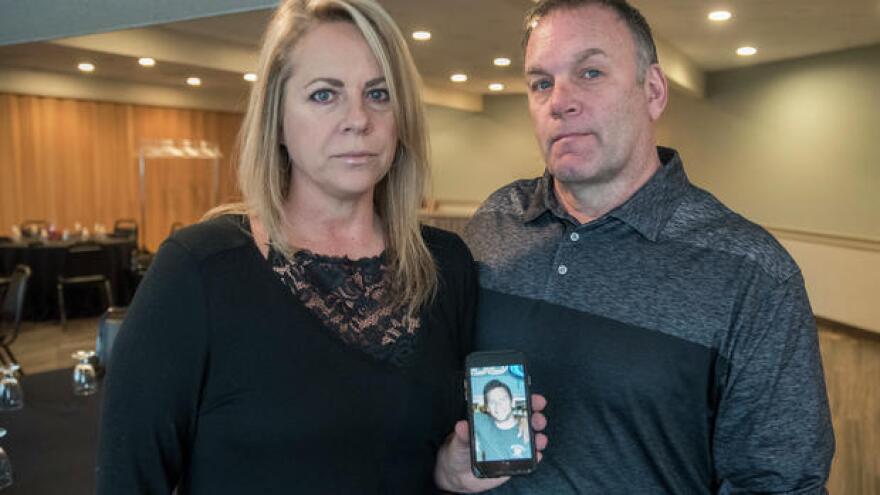Rep. Dave Baker is Republican representative from Willmar. But more than that, he's a father whose family lost their son to an opioid overdose. The stories of loss to this epidemic are startling in their similarities. It usually goes like this: there's a health issue (accident, injury, chronic pain) where pain medication like oxycodone, fentanyl, hydrocodone and others are prescribed. These medications are highly addictive, and as Rep. Dave Baker told us "heroin in pill form". The addiction leads to a need for more, and often moving into heroin itself - and overdoses occur and lives are lost. According to the National Institute of Drug Abuse 116 people die PER DAY from a opioid overdose.
Earlier this session he introduced HF 1440 "The Opioid Stewardship Bill" which called for an innovative measure called penny-a-pill where pharmaceutical companies, who make billions of dollars off of these drugs, would pay essentially a tax on each pill. As he introduced the bill Rep. Baker said he knew it was a bold idea and that might change before the end of the session. As it stands the penny-a-pill language is no longer in the bill, but Sen. Julie Rosen of Vernon Center is sponsoring the senate version of the bill. And the MN Legislative session for 2018 is not over yet.
Let your elected officials know how you feel about this bill and any others in the final days of the 2018 MN Legislative Session.
After hearing our Making Sausage conversation, one listener sent us this:
These are things we are so good with at Northern Community Public Radio. Good questions and information , without being preachy, so our listeners can gather learn, make informed decisions. I, personally, cannot see why the pill tax would be regressive in any way shape or form (unlike the license increases which tend to always hurt the mom and pop businesses (However, I'm not sure there are mom or pop in the pharmaceutical industry) if the funds are funneled back into drug intervention, mental health and the like for people affected like your guest's son. The argument that it would increase health care costs, in my take, is bogus. I believe it could have the opposite affect as addiction backs up our emergency rooms and addiction, mental health care facilities and many in those situations do not have funds to pay, so the taxpayers cover either way. Nice Job. Good interview. I'm emailing my 2 representatives next.




